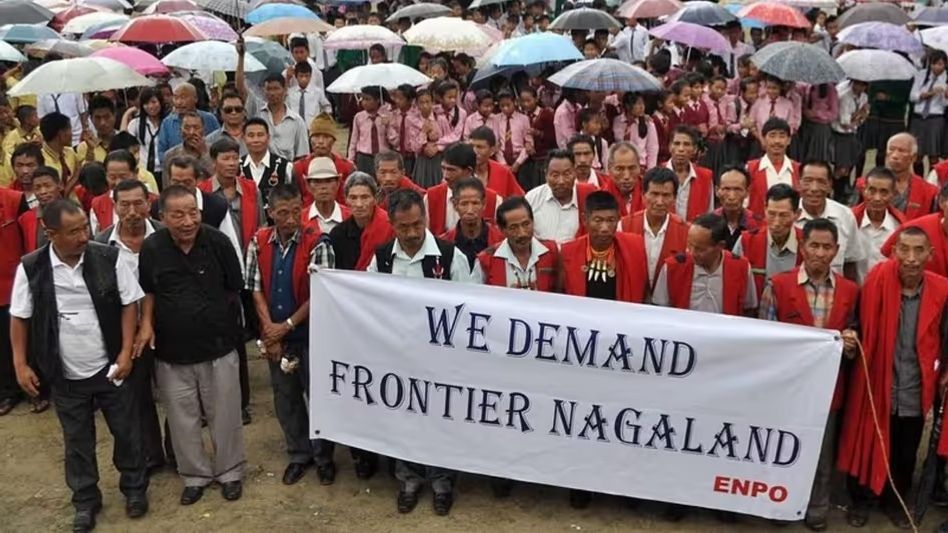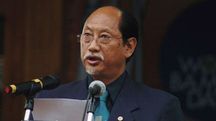Nagaland govt reaffirms commitment to frontier talks, stresses issue must stay within Article 371(A)
The Nagaland government has reiterated its commitment to continue discussions on the Frontier Nagaland Territorial Authority (FNTA), a long-standing demand of the Eastern Nagaland Peoples’ Organisation (ENPO), while asserting that the issue must remain within the framework of Article 371(A) of the Constitution.
 File Photo
File PhotoThe Nagaland government has reiterated its commitment to continue discussions on the Frontier Nagaland Territorial Authority (FNTA), a long-standing demand of the Eastern Nagaland Peoples’ Organisation (ENPO), while asserting that the issue must remain within the framework of Article 371(A) of the Constitution.
Government spokesperson and minister KG Kenye said the matter had entered a “new and delicate phase,” requiring “utmost coordination and understanding” among all stakeholders, including the ENPO and the Eastern Nagaland Legislators’ Union (ENLU).
“It has been a year since we made it clear that this cannot remain a bilateral dialogue between ENPO and the Ministry of Home Affairs. It must be a trilateral one involving the state government as well,” Kenye told reporters on Thursday.
The minister said the state Cabinet, led by Chief Minister Neiphiu Rio, viewed the FNTA issue as one concerning the “geopolitical territory of Nagaland,” adding that every citizen deserved to be informed. He said the government had conducted extensive consultations with public representatives and organisations to prepare recommendations that would be “acceptable to both sides once the FNTA is established.”
Clarifying the government’s position, Kenye stated that the proposed FNTA would not be a Union Territory, a Sixth Schedule area, or a revival of the 1960s Regional Council, but a “new model” under Article 371(A), which accords special status to Nagaland. “While we wish to accommodate the aspirations of our eastern brothers, the state cannot disown its responsibility. Whatever name or structure the FNTA assumes, it will remain a part of Nagaland,” he emphasised.
According to Kenye, the Centre has returned the state’s proposal for further review, seeking more inputs from the ENPO. The Cabinet also noted “a communication gap” between the ENLU and ENPO, which, Kenye said, had caused confusion on key issues. “Leaders from the eastern region must have more internal consultations. Sending proposals without full consent could lead to setbacks,” he cautioned.
The minister identified departmental management as one of the main challenges in implementing the FNTA framework. “The Power Department depends almost entirely on central funding. It would be difficult for the new authority to manage such departments without adequate resources,” he noted, adding that similar concerns applied to Health, School Education, and Higher Education, which might remain under state supervision initially.
Kenye also warned against ENPO’s growing reliance on “unmandated bodies” during negotiations, stating that formal talks must take place only between governments and elected representatives.
Reaffirming the state’s stand, he said the government would continue efforts to resolve the matter “without compromising Nagaland’s territorial integrity” and urged the ENPO and ENLU to work with unity and transparency.
The ENPO, which represents eight tribes across six eastern districts, has been demanding a separate state since 2010, citing decades of neglect. It later agreed to explore an autonomous arrangement under the FNTA framework. The organisation boycotted both the Lok Sabha and urban local body elections last year to press its demand.
The ENPO has said the FNTA arrangement would be reviewed after ten years and that any unresolved matters would be pursued through “democratic and political means.” It has also maintained that no agreement would be signed without firm guarantees of financial, legislative, and executive autonomy. (With inputs from PTI)
Copyright©2025 Living Media India Limited. For reprint rights: Syndications Today









